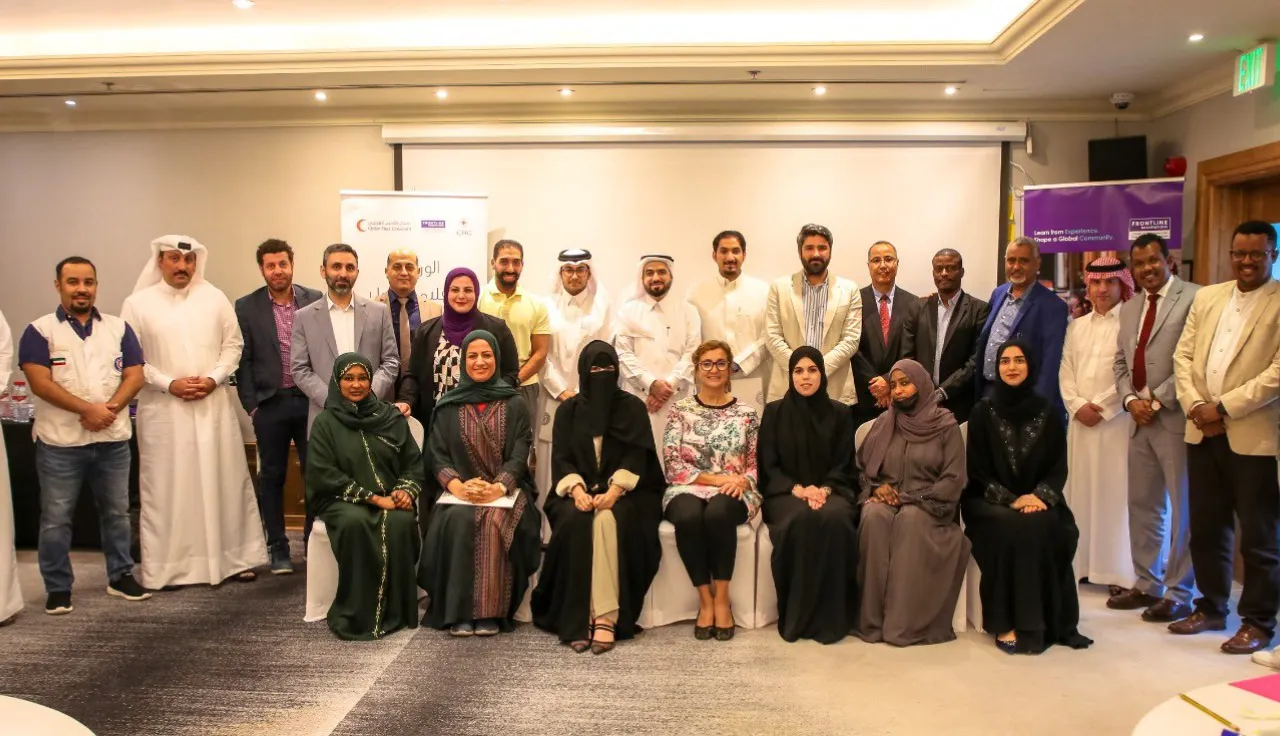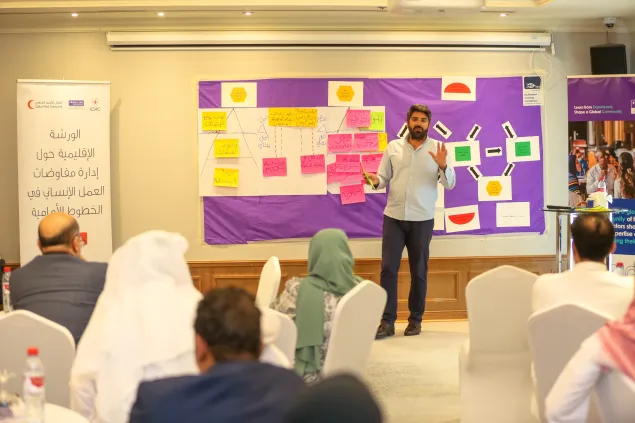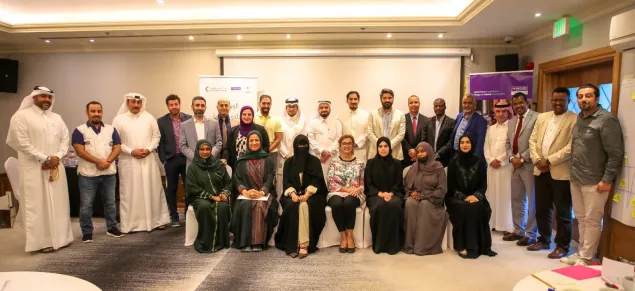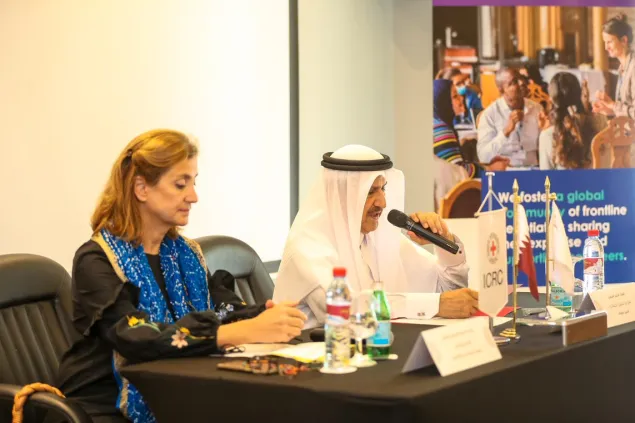Qatar: Humanitarian Negotiation Seminar Hosted for Partners in the Gulf

In collaboration with Qatar Red Crescent Society and the Centre of Competence on Humanitarian Negotiation (CCHN), the ICRC co-organized a three-day Regional Peer Workshop on Humanitarian Frontline Negotiations for members of Qatari Charities and Gulf Red Crescent Societies in Doha from 3-5 October.
Bringing humanitarian aid to people in conflict areas and other humanitarian contexts means that humanitarian workers must face the challenge of finding a compromise with different counterparts to access those vulnerable communities. To achieve this, humanitarian workers must negotiate on different levels with various stakeholders.
"The workshop signifies vital efforts by the ICRC, QRCS, and CCHN to support humanitarian action worldwide," - Cherine Pollini, ICRC Head of Mission in Qatar.
"My extensive work with the ICRC has led me to negotiate access to detention places, access to areas where the population is in need, passing checkpoints, and convincing authorities or armed groups to ensure the respect of international humanitarian law. Therefore, negotiation skills are key to our daily work as humanitarians where there is no one-size fit for success; rather, negotiation skills is a complex business," she added.
The three-day workshop aimed to strengthen and sharpen the humanitarian frontline negotiation capacities of Qatari humanitarian workers, including the Qatar Fund for Development (QFFD), the Regulatory Authority for Charitable Activities (RACA), and Qatar Charity. The workshop also included participants from the Bahrain Red Crescent Society, the Saudi Red Crescent Authority, and the Kuwait Red Crescent Society.
From his side, Mr. Ali bin Hassan Al-Hammadi, Secretary-General of QRCS, said, "this workshop brings together representatives of many government and humanitarian organizations from Qatar and beyond." He highlighted the humanitarian unity of all partaking organizations, stressing that these workshops aim to strengthen the Qatari humanitarian and charitable sector.
Participants shared their critical reflections, practices, challenges, and expertise to develop a more robust analytical framework and capacities for better negotiation practices to reach and serve the most affected populations in humanitarian contexts.



